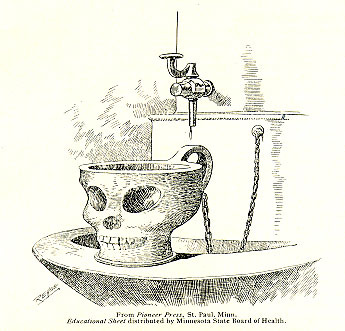Welcome to Thursday Things! This week we celebrate America’s independence, ponder the history (and future) of two great American companies, ride the lightning, and venture into the depths of space.
Rock on, Presidents! Photo by Terence Burke on Unsplash
Happy Independence Day! Did You Know... Independence Day Should Actually Be July 2?
July 2, 1776 is the day that the Continental Congress actually voted for independence. John Adams, in his writings, even noted that July 2 would be remembered in the annals of American history and would be marked with fireworks and celebrations. The written Declaration of Independence was dated July 4 but wasn't actually signed until August 2. Fifty-six delegates eventually signed the document, although all were not present on that day in August.
John Adams — technically correct, yet wrong.
The interesting history of Dixie Cups. Did you know that before disposable paper cups were invented, public water fountains featured a shared drinking dipper that everyone used?
The paper cup business received a boost when the campaign to abolish the public drinking vessel gained several important endorsements. Lafayette biology professor Alvin Davison’s influential study on the contamination present in school drinking cups was published as “Death in School Drinking Cups” in Technical World Magazine in August 1908, and redistributed by the Massachusetts State Board of Health in November 1909.

Death in a Cup. I actually want one of these now. (Illustration from The Cup-Campaigner, August, 1910)
It took a public health campaign and new state laws to abolish the “tin dipper” and replace it with clean, sanitary paper cup dispensers.
In a further development in 1909, Kansas passed the first state law to abolish the common drinking cup-the “tin dipper” in public places and the common glasses beside coolers in railroads.
But what really drove sales was the 1918 flu epidemic — as you might imagine.
The whole article is fascinating, as it details how paper cups were designed and improved — details I doubt we ever thing about — how the early 20th century paper cup business was organized, and how the Dixie Cup (previously known as the ‘Health Kup’) got its name. If you’re into that sort of thing.
Are you taking a road trip this summer? Gas is cheap, flying has become even more of a hassle than it was, and most other countries are closed for the coronavirus, so this might be the year to bring back the great American road trip. If you do hit the highway, chances are good you’ll see a Stuckey’s along the way.
The American Road Trip Talk podcast recently interviewed Stephanie Stuckey: ‘Stephanie Stuckey’s Turn At The Wheel’, the new CEO of Stuckey’s, about the history of Stuckey’s, her plans to revitalize the company — and her quest to visit every Stuckey’s location.
If you don’t have time to listen to a podcast, this article covers much of the same ground: How Stuckey's is on a crusade to give the pecan its due
A couple of months after she took over the company, Stuckey made a new year's resolution to visit every Stuckey's store in America by the end of 2020.
She posts about her travel adventures on Instagram and Facebook and loves hearing from longtime customers who share their own memories of going to Stuckey's.
Mmm, Pecan Log Rolls.
From our personal finance desk - virtual credit cards. I did not know this was a thing. I can see the utility of it. I’ve had to get credit cards reissued more than once due to my card number getting stolen in an online data breach.
A virtual credit card is a service that allows online shoppers to mask their credit card’s sensitive information by using a uniquely generated card number, expiration date and security code as a proxy. Virtual credit cards are not an alternative to a traditional credit card account. Rather, they are connected to a traditional account as a free add-on for improved security. You can create as many virtual card numbers as you want, without affecting your credit score or account standing.
Virtual credit cards decrease the likelihood of credit card fraud because the virtual card information isn’t as useful to a fraudster if stolen.
Have you heard or, or used, a virtual credit card? Worth looking into.
Congratulations to Brazil on the new lightning bolt record.
The UN's weather agency announced Thursday the longest lightning bolt on record—a single flash in Brazil on October 31, 2018 that cut the sky across more than 700 kilometers.
That is equivalent to the distance between Boston and Washington DC in the United States, or between London and Basel, Switzerland, the World Meteorological Organization said in a statement.
Space Force is getting itself organized. “The newest branch of the military will be organized into three major commands: Space Operations Command, Space Systems Command and Space Training and Readiness Command.”
Let’s zero in on that third command: “Space Training and Readiness Command — The STAR Command will be responsible for the training and education of space professionals, and will coordinate basic training and recruiting which will continue to be run by the Air Force.”
STAR Command? STAR Command!
Does anyone else remember Jason of Star Command from the early 80s? Utterly cheesy space adventure serial that ran on Saturday morning TV. (Watch the opening credits at least … you may recognize the Commander, apparently on loan from Star Fleet, of which Star Command is in no way derivative.)
Thank you for reading Thursday Things! See you next Thursday.



